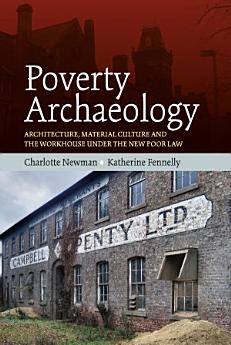Poverty Archaeology: Architecture, Material Culture and the Workhouse under the New Poor Law
Oct 2023 · Berghahn Books
Ebook
174
Pages
family_home
Eligible
info
reportRatings and reviews aren’t verified Learn More
About this ebook
The Poor Laws in the United Kingdom left a built and material legacy of over two centuries of legislative provision for the poor and infirm. Workhouses represent the first centralized, state-organized system for welfare, though they maintain a notorious historical reputation. Workhouses were intended to be specialized institutions, with dedicated subdivisions for the management of different categories of inmate. Examining the workhouse provision from an archaeological perspective, the authors demonstrate the heterogeneity of the Poor Law system from a built heritage perspective. This volume forms a social archaeology of the lived experience of poverty and health in the nineteenth century.
About the author
Charlotte Newman is a Senior House and Collections Manager at the National Trust, based in Cornwall, UK. She has a BA from the University of Leicester and an MA and PhD from the University of York. She has previously worked for English Heritage as a curator (2011-2019). She has published on archaeological and material approaches to institutions and interiors.
Rate this ebook
Tell us what you think.
Reading information
Smartphones and tablets
Install the Google Play Books app for Android and iPad/iPhone. It syncs automatically with your account and allows you to read online or offline wherever you are.
Laptops and computers
You can listen to audiobooks purchased on Google Play using your computer's web browser.
eReaders and other devices
To read on e-ink devices like Kobo eReaders, you'll need to download a file and transfer it to your device. Follow the detailed Help Center instructions to transfer the files to supported eReaders.





